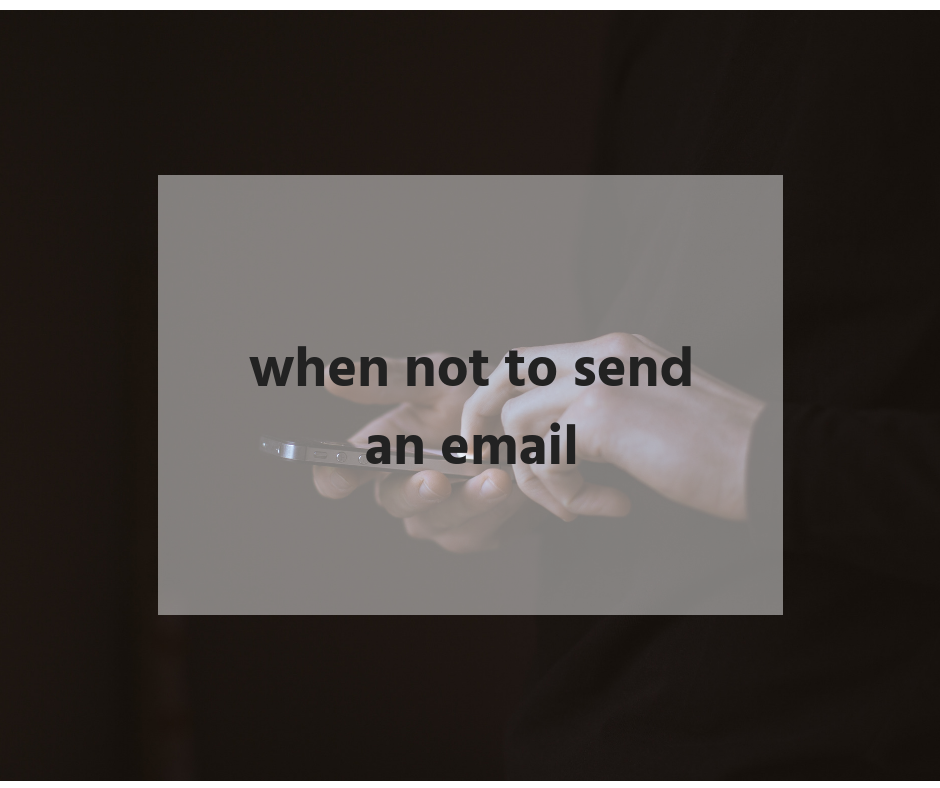|
Transitioning from college to residency, I learned many workplace lessons that ended up being rather traumatic. Any infographic or article you see that lists the differences between Baby Boomers, Generation Xers, and Millenials summarizes many of the challenges that twenty-somethings encounter in the workplace. While we use email and text as a go-to communication tool, more experienced colleagues and supervisors find it impersonal and possibly offensive to address certain topics via email. Similarly, being called in for a one-on-one meeting with your boss may throw a millennial in a tizzy. What did you do wrong? Why are you in trouble?

While everyone can benefit from understanding why and how these different generations function, that doesn’t mean everyone is going to assimilate. Learning how to construct an appropriate email is important. Learning when not to send an email may be even more important.
Email often lacks context, making it a challenging communication medium in general. When Baby Boomers and GenXers view email as impersonal and disconnected, the problem is compounded. As humans, we are programmed to consider facial expressions, tone of voice, body language, and our knowledge of the person. With email, we’re limited to the text in front of us and our knowledge of the person. Some consider TYPING IN ALL CAPS to denote excitement. For others, it’s angry.
You may also like: How to email your professor (or any supervisor)
My impetus for addressing this topic is a personal experience. Allow me to set the stage. When I was fresh out of my graduation gown, I thought my summer internship experiences were sufficiently representative of workplace interactions. They weren’t. Supervisors baby you during summer internships. You are “The College Kid”.
As a resident, I had the drive and the focus to excel at the challenging schedule and coursework, but continuously received negative feedback regarding interpersonal skills. But no one told me how to fix this. And I didn’t think it was that important. Email is efficient. I’m all about efficiency (always have been, always will be). But efficiency has trade-offs, and email is one of the places you need to be careful. I had a serious concern, and did not understand the implications of my complaint when I sent a two sentence email to my boss. I received a quick response to schedule a meeting and lived in fear for the next few days. I had no idea what the meeting was about. Why did I feel like I was in trouble? And during that meeting, I got my head ripped off. So, I should not have expressed this concern in an email. It was an inappropriate communication tool for it, to my boss, and this was compounded by lack of context. What I should’ve done was schedule a meeting with my boss to have a discussion about it (*). Now, my mentor sat in on the meeting, and as a result of this event, we started discussing how to improve interpersonal skills. It felt silly to have someone explain this to me, but it’s so necessary! Many jobs for new graduates pair them with a counselor or a group of new employees, where you are mentored and can express concerns and questions. A cut-throat residency program that requires you to magically improve your interpersonal skills while maintaining your competitive nature from college is setting you up for disaster. (*) Your supervisor should never rip your head off. Discussions with any colleague or supervisor should be calm and courteous.
You may also like: Why "Millenials" Write You Emails
Here’s the take-away.
For example, email your advisor to set up a meeting to discuss your topic instead of typing out a long email. And always email to schedule a meeting asking for a recommendation letter or reference. Have you had a similar experience? Do you have a question? Post in our comment section as your fellow readers may be thinking the same thoughts. Best of luck! BD
0 Comments
Your comment will be posted after it is approved.
Leave a Reply. |
popular postsLike what you read?
categories
All
archives
July 2024
This website uses marketing and tracking technologies. Opting out of this will opt you out of all cookies, except for those needed to run the website. Note that some products may not work as well without tracking cookies. Opt Out of Cookies |










 RSS Feed
RSS Feed